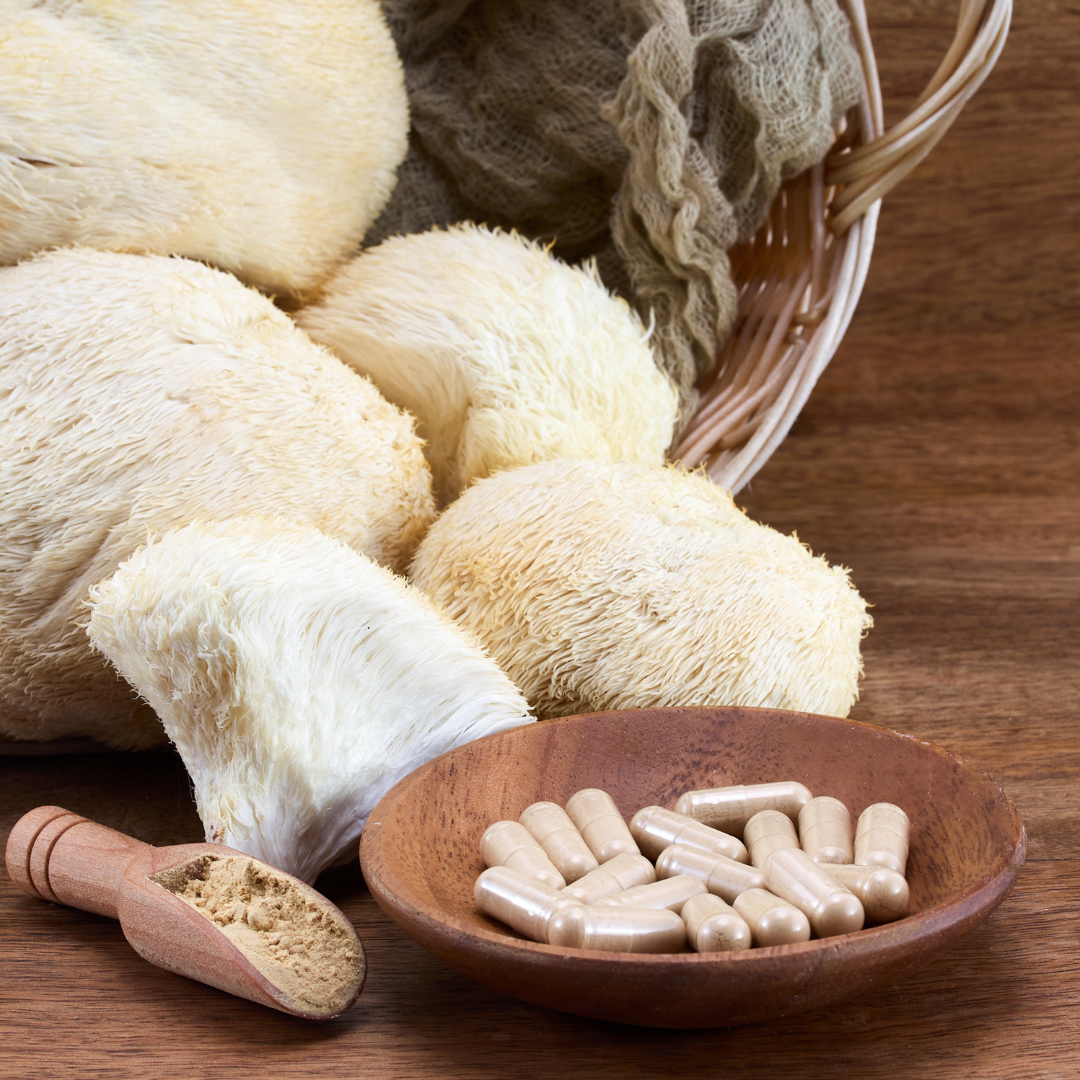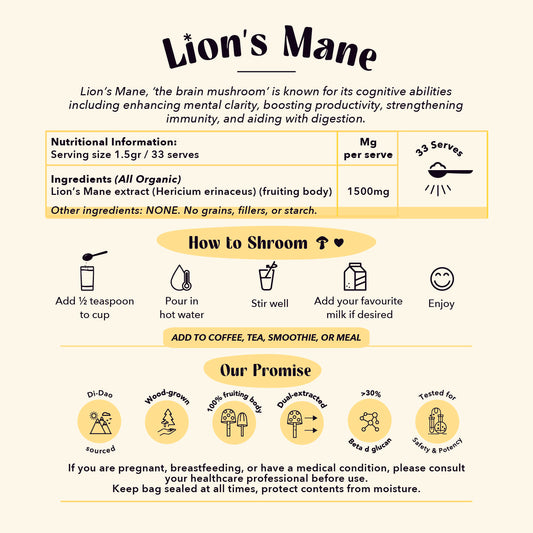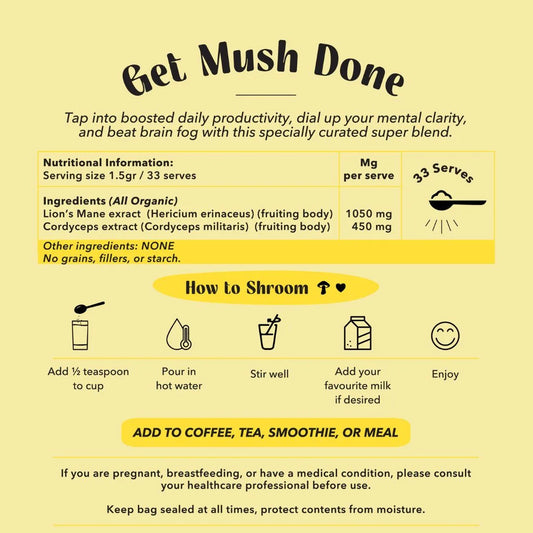If you’ve been diving into the world of functional mushrooms, chances are you’ve already heard the name Lion’s Mane.
Whether it’s popping up on wellness podcasts, in brain-boosting coffee blends, or in the pantry of that friend who’s always ahead of the curve, Lion’s Mane is having a serious moment. But as with anything buzzy in the health world, it’s worth asking — what does it actually do? And how can you take it in a way that really works?
At Mush Mush, we use Lion’s Mane across multiple products, and for good reason. It’s not just a trend — it’s one of the most researched mushrooms when it comes to cognitive support, brain health, and nervous system balance.
Let’s break down what makes this mushroom so unique, how it works, and how you can make the most of it in your daily life.
🍄 What Is Lion’s Mane?
Lion’s Mane (Hericium erinaceus) is a shaggy, white mushroom that resembles a pom-pom or — you guessed it — the mane of a lion. It grows on hardwood trees and has a long history of use in Traditional Chinese Medicine, especially for its effects on the brain and digestive system.
In recent years, modern research has caught up with tradition. Studies show that Lion’s Mane supports the production of nerve growth factor (NGF) — a compound that helps protect and regenerate neurons (brain cells). NGF plays a vital role in everything from learning and memory to mood regulation and neuroplasticity (the brain’s ability to change and adapt).
And What Does It Actually Do?
The short answer? It helps your brain work better — and feel calmer doing it.
People who take Lion’s Mane consistently report:
— Clearer thinking and reduced brain fog
— Easier focus, especially for long tasks
— Improved memory recall
— More stable moods
— Better sleep and dream recall (seriously, it’s a thing)
It’s not a stimulant, so you won’t get an instant “kick” like coffee. But over time — usually after a week or two of daily use — people notice a shift. Less scatter. More structure. And a kind of grounded mental energy that feels very different to caffeine highs and crashes.
For those with ADHD, brain fatigue, or demanding work schedules, Lion’s Mane can be a total game-changer.

How to Actually Feel the Benefits
This is the part most people get wrong: not all Lion’s Mane is created equal.
To experience real results, here’s what you need to look for:
— 100% fruiting body (not mycelium on grain, which is cheaper but less potent)
— Dual extract (to make both water- and fat-soluble compounds bioavailable)
— Consistent daily use (it’s a supplement, not a one-off fix)
We use a potent dual-extracted fruiting body Lion’s Mane in all our blends — no fillers, no fluff. You’ll find it in:
— Mind Brew — for energy and focus
— Get Mush Done — for creative flow and productivity
— MultiMush — for daily brain + body support
Just one scoop per day is enough to see a difference — especially when you stack it with good sleep, hydration, and a little movement.

Real-Life Results
We hear from customers all the time who tell us Lion’s Mane has helped them study, work smarter, reduce anxiety, or finally feel like their mind is catching up with their intentions. It’s not magic — it’s just giving your brain what it needs to do its job properly.
Whether you’re juggling multiple projects, navigating mental fatigue, or simply want to feel a little sharper — Lion’s Mane is a gentle but powerful tool to have in your corner.
Ready to Try It?
Start with a blend you’ll actually look forward to drinking. Whether it’s a morning coffee or a mid-afternoon productivity boost, Lion’s Mane works best when it’s part of a daily ritual.
Explore our Lion’s Mane range here.






